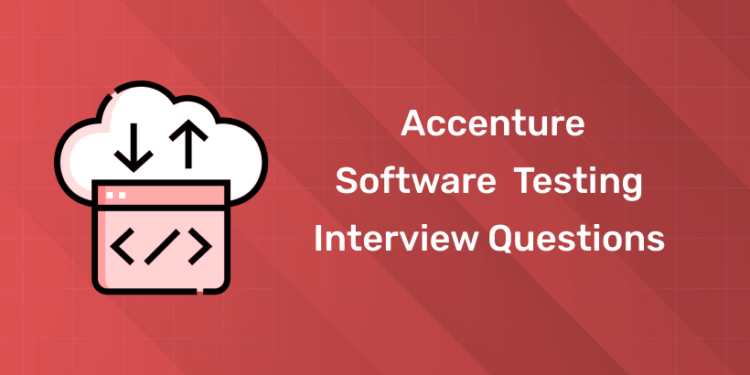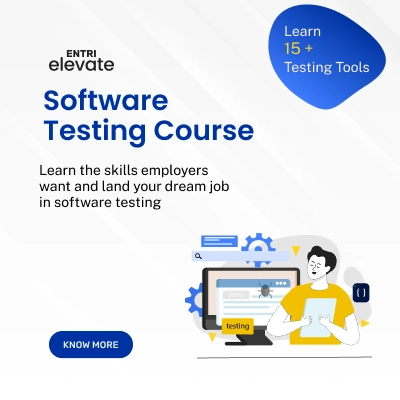Table of Contents
Software testing is a crucial part of the software development life cycle, to ensure applications are functional, reliable and defect free. Accenture, a global professional services company, has great opportunities for software testers. To prepare for Software Testing Interview at Accenture you need to have a good understanding of software testing principles, tools and methodologies. This blog post will give you an overview of Accenture, reasons to join as a software tester, preparation tips and top interview questions to help you succeed.
Overview of Accenture
Accenture is a global professional services company with capabilities in digital, cloud and security. Combining unmatched experience and specialized skills across more than 40 industries, Accenture offers strategy and consulting, interactive, technology and operations services. They cultivate an inclusive culture, provide continuous learning opportunities, and commit to innovation.
Why Join Accenture as a Software Tester?
- Diverse Projects: Work on multiple projects across different industries, get exposure to latest technologies and practices.
- Career Growth: Accenture has a structured career path with continuous learning opportunities and certifications.
- Work-Life Balance: Accenture promotes work-life balance with flexible work arrangements and wellness programs.
- Innovative Environment: Be part of a culture that encourages innovation, creativity and use of latest technologies.
Preparation Tips for Accenture Software Testing Interviews
1: What is software testing?
- Understand the Basics: Be thorough with fundamental concepts of software testing including types of testing, test case design and defect lifecycle.
- Know the Tools: Familiarize yourself with testing tools like Selenium, QTP, JIRA and LoadRunner.
- Practical Experience: Highlight any hands on experience with software testing projects, internships or practical coursework.
- Research Accenture: Understand Accenture’s values, recent projects and technological focus areas.
- Mock Interviews: Practice common interview questions and participate in mock interviews to improve your confidence and communication skills.
Master Testing Skills with Industry Experts
Become a Test Engineer: Learn Core Skills from Industry-Leading Mentors and Land High-Paying Testing Jobs!
Explore ProgramTop Accenture Software Testing Interview Questions
1.What is Software Testing?
Answer: Software testing is the process of evaluating a software application to ensure it meets the specified requirements and is defect free. It involves executing the software components using manual or automated tools to identify any gaps, errors or missing requirements.
2.Can you explain different types of testing?
Answer: Different types of testing are:
- Unit Testing: Testing individual components or modules of a software.
- Integration Testing: Testing the integration of different modules or components.
- System Testing: Testing the complete and integrated software application.
- Acceptance Testing: Testing the software to ensure it meets the business requirements.
3.What is the difference between black-box testing and white-box testing?
Answer:
- Black-box Testing: Testing without knowing the internal structure of the application. Focuses on inputs and outputs.
- White-box Testing: Testing with knowledge of the internal structure and code of the application. Focuses on code coverage, paths and internal logic.
Learn Software Testing from QA Experts! Get Free Demo Classes Here!
4.What is test data? How do I create test data?
Answer: The software is still in the staging environment where there is no usage data. Some test scenarios require data from real users, like the Login feature test where users enter combinations of usernames and passwords. In those cases testers need to create a test data set of mock usernames and passwords to simulate actual user interactions with the system.
When creating a test data set:
- Data Relevance: Is the data relevant to the application being tested? Is it real world scenarios?
- Data Diversity: Are there many data types (valid/invalid/boundary values, special characters, etc.)? Have we covered enough input combinations to get maximum coverage?
- Data Completeness: Does the data cover all the required elements for that scenario (e.g. mandatory/optional fields)
- Data Size: Should we use a small or big data set?
- Data Security: Is there any sensitive/confidential information in the data set? Is the test data properly managed and stored?
- Data Independence: Is the test data independent from other test cases? Does the test data of this test case interfere with another test case?
5. What is shift left testing? How is it different from shift right testing?
Answer: Shift left testing is a software testing approach where testing is done earlier in the development process. This means moving all testing activities to earlier development stages instead of waiting till the end. Its purpose is to be proactive in finding and fixing defects early so they don’t spread throughout the entire application. By fixing earlier the cost and effort required to fix is reduced.
6.What is a User Story?
Answer: In software development, a User Story is an informal natural language description of a software feature from the end user’s perspective. It’s a tool used in Agile software development to capture a description of a software feature from the end user’s perspective. Some of the characteristics of a user story are-
- It describes who, what and why.
- It helps to create a simple description of a requirement.
- You can write them on index cards, Post-it notes, or in project management software.
- Various stakeholders, such as clients, users, managers, or development team members, can write user stories.
7. What is Test Environment?
Answer: The test environment is the hardware and software configuration where the test team can run the test cases. It is set up as per the Application Under Test. The test bed may be a combination of the test environment and the test data with which it interacts. It involves setting up various areas like-
- Test Server setup.
- Network.
- Test PC setup.
- Bug Reporting.
8. What is Dynamic Testing?
Answer: Dynamic testing is a software testing technique where the dynamic behavior of the code is checked. The purpose of this type of testing is to check and analyze the software behavior with dynamic variables and find the weak areas in the software runtime environment.
- In this type of testing, the software should be compiled and run.
- Giving the input values and checking if the output is as expected by executing specific test cases.
9. What is Risk-Based Testing?
Answer: Risk-based testing is a software testing technique that is based on the probability of the risks and involves assessing the risk based on factors like:
- Software complexity.
- Business criticality.
- Frequency of use.
- Possible areas of defects.
It uses risks to prioritize the tests during test execution. It starts early in the software project, identifying the risks to system quality and using the knowledge of risks identified to guide testing planning, specification, preparation and execution.
10. What is a Test Script?
Answer: Step-by-step instructions in test scripts detail the system transactions needed to validate the application or system under test.
- These are the programs that run tests on the software product/ application.
- The tester has to write and run test scripts to validate if the application’s outcome meets the business requirements.
11. What is Sanity Testing?
Answer: Sanity Test also known as Surface Testing is a type of software testing that is performed to ensure the code changes are working fine without bugs.
- Done on stable build of the software.
- A subset of Regression testing.
- Sanity testing is done after the software product has passed the Smoke test.
- Not detailed testing.
12.What tools do you use for software testing?
Answer: Common tools include:
- Manual Testing: JIRA, Bugzilla, TestRail.
- Automation Testing: Selenium, QTP, LoadRunner, UFT.
13. What is the importance of test automation?
Answer: Test automation is important because it increases efficiency, reduces manual effort, ensures repeatability, and allows for more extensive test coverage. It is particularly valuable for regression testing and large-scale projects.
14. How do you handle conflicts within a testing team?
Answer: Handling conflicts involves:
- Communication: Open and respectful communication to understand different perspectives.
- Mediation: Facilitating discussions to find common ground.
- Collaboration: Encouraging teamwork and mutual respect.
- Escalation: Involving a higher authority if necessary to resolve conflicts.
15.How do you ensure the quality of your test cases?
Answer: Ensuring quality involves:
- Review and Peer Review: Having test cases reviewed by team members.
- Traceability: Linking test cases to requirements to ensure coverage.
- Clarity and Detail: Writing clear, concise, and detailed test cases.
- Continuous Improvement: Regularly updating and improving test cases based on feedback and new findings.
Entri’s Software Testing Course
If you’re looking to excel in software testing and land a job at top companies like Wipro, consider enrolling in Entri’s comprehensive Software Testing Course. This course covers all essential aspects of software testing, providing you with the skills and knowledge required to succeed in your career. You’ll gain hands-on experience, learn from industry experts, and be well-prepared for your interviews.
Conclusion
Preparing for a software testing interview at Wipro requires a strong understanding of testing concepts, thorough practice of common interview questions, and a solid preparation strategy. With the right approach, you can ace your interview and secure a rewarding career as a software tester at Wipro. Enroll in Entri’s software testing course to boost your chances of success and stay ahead in the competitive job market.
Are you aspiring for a booming career in IT? Then check out |
|||
Full Stack Developer Course |
Python Programming Course |
Data Science and Machine Learning Course |
Software Testing Course |
Frequently Asked Questions
What should I focus on when preparing for an Accenture software testing interview?
Focus on core software testing concepts, Accenture’s methodologies, common interview questions, and practical skills relevant to the role.
How can I demonstrate my testing skills during the interview?
Provide detailed examples of past projects, explain your testing approach, and be ready to perform practical tasks or case studies.
What types of questions are typically asked in Accenture software testing interviews?
Expect questions on testing methodologies, defect life cycle, types of testing, automation tools, and situational problems to assess your problem-solving skills.
Why is Accenture a good choice for software testers?
Accenture offers global exposure, innovative projects, career growth opportunities, and comprehensive benefits, making it an excellent choice for software testers.
How can I prepare for the technical aspects of the interview?
Review key software testing concepts, practice with relevant tools, and stay updated on the latest trends in software testing to ensure you’re well-prepared.
What is the role of a software tester ?
A software tester is responsible for designing test cases, executing tests, identifying defects, collaborating with development teams to resolve issues, and ensuring the quality of software applications.
What automation testing tools should I be familiar with for a tester interview?
Familiarity with tools such as Selenium, QTP, LoadRunner, and JIRA can be beneficial for automation testing roles.














